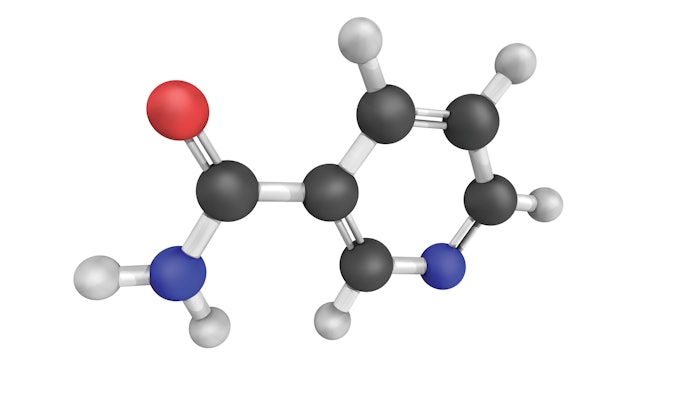
Niacinamide, also called nicotinamide, is a water-soluble form of vitamin B3 that is used to address a multitude of skin concerns, including enlarged pores, skin texture, skin aging and a weakened barrier. This essential nutrient “can be manufactured in nearly all cells in the body where it is incorporated into Nicotinamide Adenine Dinucleotide (NAD) and Nicotinamide Adenine Dinucleotide Phosphate (NADP) that are necessary components for regulating energy for all cells to operate effectively,” explains James Beckman, MD, biochemist, board certified plastic surgeon, associate clinical professor of dermatology at the University of Arkansas medical school and founder of Theraderm Clinical Skin Care.
Niacinamide can provide benefits to the skin and body through oral consumption or topical application. “Niacinamide combines into a dinucleotide with adenine to form a critical coenzyme in every cell in the body. This coenzyme is involved with hundreds of essential metabolic processes, as it supports mitochondrial function and the cellular use of oxygen,” says Dr. Beckman. “The body can make it as well as converting various foodstuffs to keep levels available.”
Some of the key anti-aging benefits of niacinamide include its ability to build keratin and assist skin production of ceramides that then help to minimize loss of skin moisture and keep the skin firm and healthy. Dr. Beckman notes that, while more research is needed, when used topically, it has been shown to help treat certain skin conditions such as acne and eczema by minimizing redness from inflammatory conditions and regulating the amount of sebaceous oil produced.
Continue reading more about the benefits of niacinamide in skin care in our Digital Magazine...
Maggie Walker is the associate editor of MedEsthetics.











